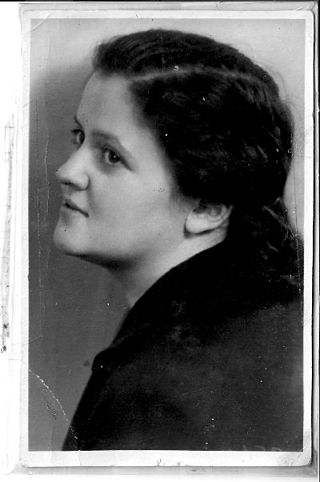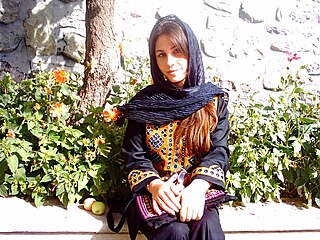
The Revolutionary Association of the Women of Afghanistan (RAWA) is a women's organization based in Kabul, Afghanistan, that promotes women's rights and secular democracy. It was founded in 1977 by Meena Keshwar Kamal, an Afghan student activist who was assassinated in February 1987 for her political activities. The group, which supports non-violent strategies, had its initial office in Kabul, Afghanistan, but then moved to Pakistan in the early 1980s.

Human Rights Watch (HRW) is an international non-governmental organization headquartered in New York City that conducts research and advocacy on human rights. The group pressures governments, policymakers, companies, and individual human rights abusers to denounce abuse and respect human rights, and often works on behalf of refugees, children, migrants, and political prisoners.

Yuri Fyodorovich Orlov was a particle accelerator physicist, human rights activist, Soviet dissident, founder of the Moscow Helsinki Group, a founding member of the Soviet Amnesty International group,. He was declared a prisoner of conscience while serving nine years in prison and internal exile for monitoring the Helsinki human rights accords, he was declared a prisoner of conscience by Amnesty International as a founder of the human rights movement in the Soviet Union. Following his release from exile, Orlov was allowed to emigrate to the U.S. and became a professor of physics at Cornell University.
Helsinki Watch was a private American non-governmental organization established by Robert L. Bernstein in 1978, designed to monitor the former Soviet Union's compliance with the 1975 Helsinki Accords. Expanding in size and scope, Helsinki Watch began using media coverage to document human-rights violations committed by abusive governments. Since its inception, it produced several other watch committees dedicated to monitoring human rights in other parts of the world. In 1988, Helsinki Watch and its companion watch committees combined to form Human Rights Watch.

Boris Ottokar Dittrich is a Dutch politician, jurist, author and human rights activist who served as Leader of the Democrats 66 (D66) from 2003 to 2006. A former member of the House of Representatives (1994–2006), he has been a member of the Senate since 2019.
Robert Louis Bernstein was an American publisher and human rights activist.
Soviet dissidents were people who disagreed with certain features of Soviet ideology or with its entirety and who were willing to speak out against them. The term dissident was used in the Soviet Union (USSR) in the period from the mid-1960s until the Fall of Communism. It was used to refer to small groups of marginalized intellectuals whose challenges, from modest to radical to the Soviet regime, met protection and encouragement from correspondents, and typically criminal prosecution or other forms of silencing by the authorities. Following the etymology of the term, a dissident is considered to "sit apart" from the regime. As dissenters began self-identifying as dissidents, the term came to refer to an individual whose non-conformism was perceived to be for the good of a society. The most influential subset of the dissidents is known as the Soviet human rights movement.

The Moscow Helsinki Group was one of Russia's leading human rights organisations. It was originally set up in 1976 to monitor Soviet compliance with the Helsinki Accords and to report to the West on Soviet human rights abuses. It had been forced out of existence in the early 1980s, but was revived in 1989 and continued to operate in Russia.

Author and publisher Valery Nikolaevich Chalidze was a Soviet dissident and human rights activist, deprived of his USSR citizenship in 1972 while on a visit to the US.

Mahnaz Afkhami is an Iranian women's rights activist who served in the Cabinet of Iran from 1976 to 1978. She is founder and president of Women's Learning Partnership (WLP), executive director of the Foundation for Iranian Studies and former Minister of Women's Affairs in Iran's pre-Revolution government. She has lived in exile in the United States since 1979.
Barnett Richard Rubin is an American political scientist and a leading expert on Afghanistan and South Asia. He is the author of eight books and is currently Senior Fellow and Director at the Center on International Cooperation at New York University, a leading foreign policy center. He was previously Senior Advisor to the US Special Representative for Afghanistan and Pakistan. He has advised the United Nations, NATO, the United States and the Afghan government on numerous policy matters, including aid policy, security policy, and diplomatic strategy.

Lyudmila Mikhaylovna Alexeyeva was a Russian historian and human-rights activist who was a founding member in 1976 of the Moscow Helsinki Watch Group and one of the last Soviet dissidents active in post-Soviet Russia.

Catherine Ann Fitzpatrick, also known under her pen name and virtual worlds pseudonym "Prokofy Neva", is a former human rights activist, Russian–English translator, former journalist, and a blogger and commentator. She has worked for several human rights NGOs, and is a former research director at Human Rights Watch, the former editor of Radio Free Europe/Radio Liberty's radio magazine "(Un)Civil Societies," and the former Executive Director and Chief Representative to the United Nations of the International League for Human Rights. She has written on psychiatric abuse in the Soviet Union. She has translated 30 Russian books by authors such as Joseph Stalin, Boris Yeltsin, Vladimir Putin, and several USSR Politburo members.

Naum Natanovich Meiman was a Soviet mathematician, and dissident. He is known for his work in complex analysis, partial differential equations, and mathematical physics, as well as for his dissident activity, in particular, for being a member of the Moscow Helsinki Group.

Inna Ilyinichna Meiman-Kitrossky was a refusenik, a member of a group of refuseniks-cancer patients, and an author of textbooks for the English language.

Homeira Qaderi born in 1980 is an Afghan writer, advocate for women's rights, and professor of Persian literature, currently serving as a Robert G. James Scholar Fellow at Radcliffe Institute of Advanced Research, Harvard University.
Peter L.W. Osnos is an American journalist and publisher, who founded PublicAffairs Books.

Roya Rahmani is an Afghan diplomat who served as Afghanistan's first female ambassador to the United States and non-resident ambassador to Mexico, Argentina, Colombia, and the Dominican Republic from December 2018 to July 2021. She is currently the Chair of the international advisory company in development finance — Delphos International LTD. She is also a distinguished fellow at the Georgetown Institute for Women, Peace, and Security, a senior advisor at the Atlantic Council's South Asia Center, and a senior fellow for international security at the New America Foundation. From 2016 to 2018, she served as Afghanistan's first female ambassador to Indonesia, first ever ambassador to the Association of Southeast Asian Nations, and non-resident ambassador to Singapore.

The Kunduz massacre was a war crime perpetrated by the Soviet Army on 22 December 1984 in the village of Haji Rahmatullah in the Kunduz Province, during the Soviet–Afghan War. Around 250 civilians were reportedly killed in what was described as Soviet reprisals against civilians for anti-communist resistance members and their military actions aimed against the Red Army.













